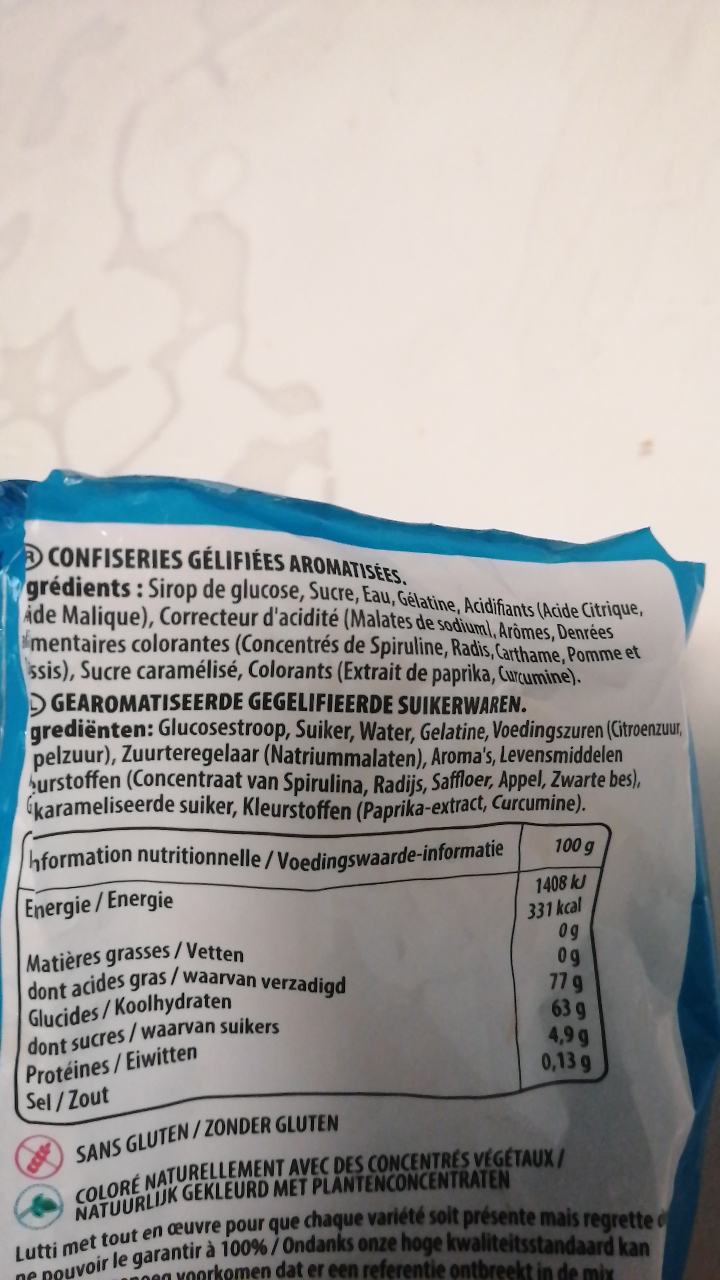
Barcode: 3664346344043
flavored jelly candies
DOUBTFUL
📝 Reason: This product contains religiously questionable substances. Their acceptability varies among Islamic scholars based on potential derivation methods and sources.
🏷️ Category: Candy
📄 Certificates: Flavored Jelly Candies, Naturally Colored With Vegetable Concentrates, Gluten Free
Ingredients:
Details
Understanding the Halal Status of Flavored Jelly Candies
When it comes to sweets, Flavored Jelly Candies are a popular choice for many. However, for those adhering to Halal dietary guidelines, it is crucial to understand the Halal status of these candies. The current status of Flavored Jelly Candies is marked as DOUBTFUL, primarily due to the presence of ingredients like gelatin, which varies in acceptability depending on its source.
Ingredients Breakdown
The main ingredients in Flavored Jelly Candies consist of:
- Glucose Syrup: Permissible in Islam, as it is derived from starches that are Halal.
- Sugar: Also permissible, as sugar is typically made from sugar cane or sugar beets.
- Water: This is fundamentally Halal.
- Gelatin (E441): This is the ingredient that raises concerns. Gelatin can be derived from both Halal and non-Halal sources. It is advised to check for a Halal logo or certification on the packaging.
- Citric Acid (E330): Generally accepted in Islamic dietary laws; it is produced from fermentation.
- Malic Acid (E296): A naturally occurring compound that is permissible in Islam.
- Sodium Malates: These are also considered permissible.
- Flavorings: While flavorings can be derived from both natural and synthetic sources, they are mainly accepted as Halal.
- Coloring Foods: Ingredients like spirulina concentrate, radish, safflower, apple, and black currant are permissible in Islam.
- Caramelized Sugar: This is considered Halal as well.
- Colorants (Paprika Extract and Curcumin): Both colorants are permissible.
Why the Doubt?
The DOUBTFUL status of Flavored Jelly Candies largely stems from the gelatin component. Religious scholars have varying opinions based on how the gelatin is derived, as it could potentially come from non-Halal animals if not clearly marked. Thus, while many ingredients are clearly Halal, the key concern lies in verifying the source of the gelatin.
Brand Context and Certifications
These candies fall under the category of candies, which often sparks interest among food lovers. The manufacturer claims that their Flavored Jelly Candies are naturally colored with vegetable concentrates and are gluten-free. However, without a noted brand or specific manufacturer, consumers are advised to be vigilant and seek extra confirmation regarding Halal certifications depending on the product batch and sourcing.
Conclusion
In summary, while Flavored Jelly Candies contain several Halal components, the presence of gelatin puts their overall Halal certification under doubt. It is essential for consumers, especially those observing Islamic dietary laws, to be attentive when making a purchase. Always look for Halal logos or reach out to the manufacturer for clarity on their sourcing methods to ensure the candy meets their individual Halal requirements.
Stay informed and enjoy your sweets responsibly!
